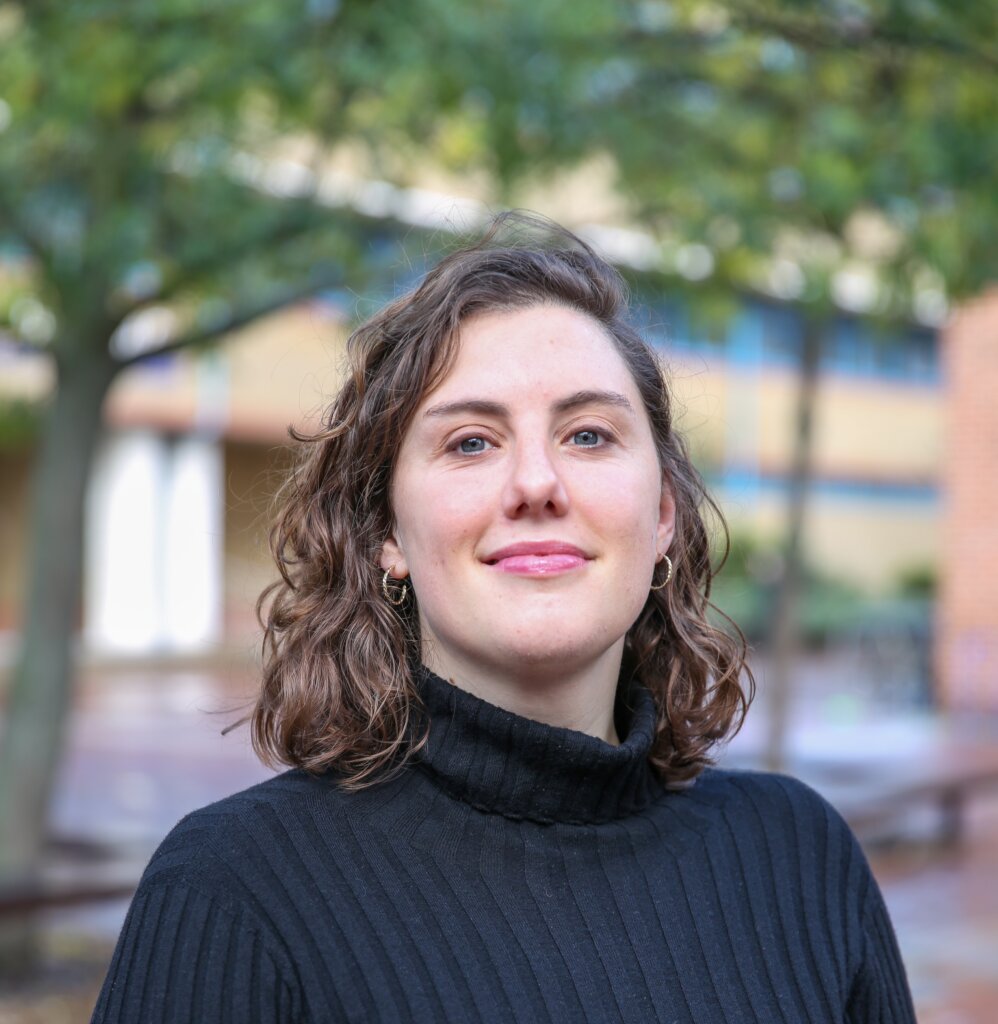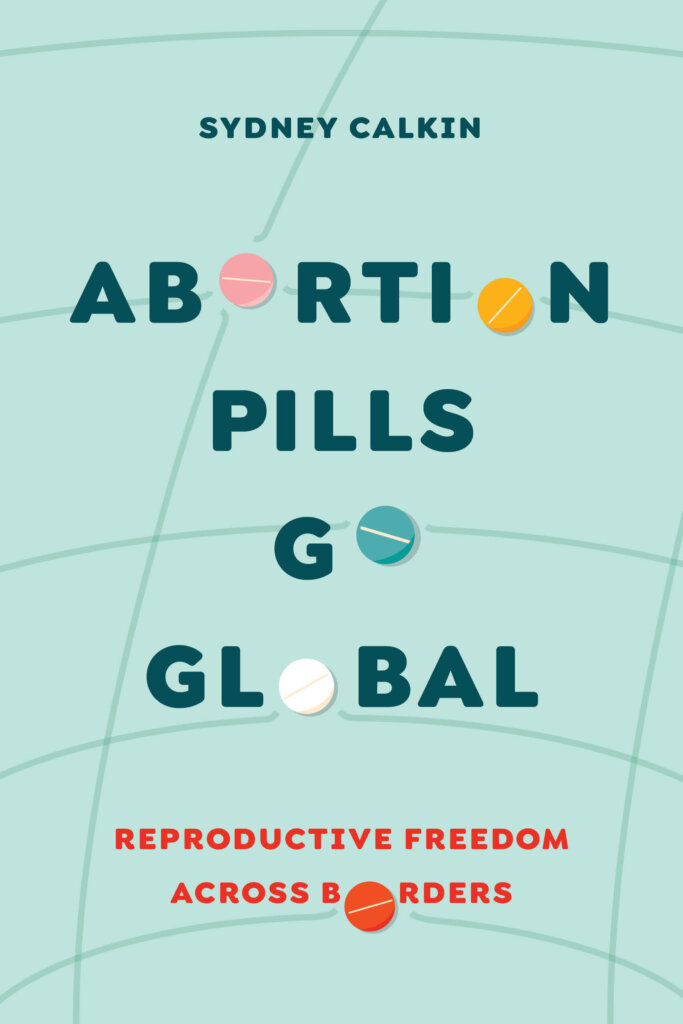
Abortion Pills Go Global: Reproductive Freedom across Border is a timely illustration of the profound and transformative promise of safe medication abortion pills. Exploring the journey of these pills from manufacturing plants to transported by feminist activists from India, Ireland, Northern Ireland, Poland, and the United States, author Sydney Calkin shows that the growing availability of abortion pills in places with restrictive laws means more people have access to self-managed healthcare.
In conversation with us, Calkin speaks about her inspiration for writing about such a topic, the connection with feminist activists, and what we all can learn from this movement.
What was your driving force behind writing Abortion Pills Go Global?
I started this research about seven years ago, well before the Dobbs decision was on the horizon. I was interested in the way that technology was changing abortion. At the time, I thought this might involve a wider range of technologies – like the ships and drones being used by the Dutch activists Women on Waves, for instance. I pretty quickly realized that those ‘big’ technologies were mostly symbolic, and what was really important was the way that they made abortion pills more accessible across borders. I set out to understand the impact of abortion pills as they cross international borders, because I had a hypothesis that some of the qualities of abortion pills (cheap, discrete, mobile) would make them very hard for governments to intercept and block. A few questions follow from this starting point: if they are less and less able to enforce their anti-abortion laws in the face of self-managed abortion, how do governments react? How do activists respond? And how do cross-border pill flows change things for abortion-seekers?

What was the process of writing on such a subject as this like?
When I tell people about the book, I usually get two reactions – either people think it must have been a very depressing project to undertake, or they think it’s come about very recently because of Dobbs! I don’t think either assumption is true for me. I’ve found it challenging but inspiring to work on this book the whole way through because I’ve chosen to concentrate on the efforts of pro-choice activists (and the doctors, lawyers, campaigners, etc. who support them). These activists are endlessly creative and motivated. They are also incredibly brave in the face of setbacks.
Your research began before the United States Supreme Court’s critical decision to overturn Roe v. Wade and when the rest of the world looked markedly different. What did the landscape of abortion look like when you started?
I started the book back in 2016 when the landscape looked very different in most of the countries I write about. The USA still had Roe vs. Wade in place, Ireland still had a constitutional abortion ban, and Northern Ireland still had an abortion ban with ongoing criminal prosecutions. Poland’s law has changed the least since that point, although it has become more restrictive. From 2016 to today, most of the countries covered in this book have undergone enormous changes in their abortion laws. I was lucky to be able to do research in those countries, with activists on the ground, at the very moments when big changes were taking place.
A key aspect of the book is the work of the feminist activists you follow and document. How did you come to connect with these inspiring activists?
This was a challenging but very rewarding part of the work. I met many of the abortion pill activists through my own connections in activist circles. During five of the seven years I’ve worked on the project, I have worked as a volunteer with an abortion support group in the UK which helps people travel abroad for abortions. I worked on the phone team, taking calls from abortion-seekers across Europe. I met many abortion pill activists through this wider network, because activists from Ireland, Northern Ireland, and Poland are so closely tied to activists in countries like the UK and the Netherlands, where abortion travelers often obtain care. These European networks are also closely tied to American activist groups. Working as a volunteer in a UK abortion support group helped me access the people I later interviewed, because it built their trust in me and showed that I wasn’t just popping in for a single interview before moving onto the next paper. I think activists are often wary of academics, for good reasons, because academics have a reputation for doing extractive research. I’ve tried to work in a different way, combining scholarship and activism, as much as possible with this project.
Going forward, what does the world community need to do around self-managed abortion?
One of the important lessons that has come through in my research is the need to re-frame the way we think about self-managed abortion. This is especially true for campaigners and doctors who are accustomed to advocating for greater access to clinical abortion services. Sometimes campaigns to defend abortion clinics and medicalized abortion services can end up giving stigmatizing or misleading information about self-managed abortion. This is something we saw in Ireland, for instance. Sometimes Irish campaigners were divided over how they should frame self-managed abortion in their public messages – as a stop-gap measure that was only acceptable until doctor-led services could be established? Or as a new model of care that some people might choose, even under a progressive legal framework? I think we see a parallel to this in the US right now with the way people talk about medication abortion pills: the FDA has approved the brand Mifeprex (and one generic version), but there are many generic equivalents available online that are not FDA-approved, but which are safe and effective. Self-managed abortion with medication bought online has been proven safe, effective, and essential – it is certainly not a ‘backstreet’ abortion although it is sometimes covered as such in the American press.
I need to conclude on a note of caution. In many countries with apparently liberal abortion laws, abortion is still technically a crime. England, where I live, is a perfect example of this: in practice, England allows abortion until 24 weeks, after two doctors approve of the pregnant person’s reason for requesting the abortion. But abortions outside of this medical-legal framework are still crimes. Recently, we’ve seen two women in England in court for self-managing abortions with pills they obtained during the Covid-19 lockdown. One woman was sentenced to 14 months in prison (before she won an appeal that reduced her sentence and permitted her to serve out the remaining time on probation); the trial of the other woman is ongoing. These prosecutions should remind us that even abortion laws that are seen as ‘liberal’ can do grave harm to abortion-seekers. Nothing short of full decriminalization is sufficient.
This post is part of our #ASA2023 blog series. Visit our virtual ASA 2023 website and find out how to get 40% off our books.